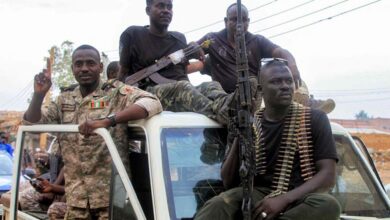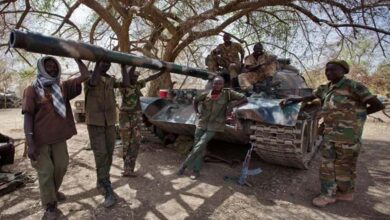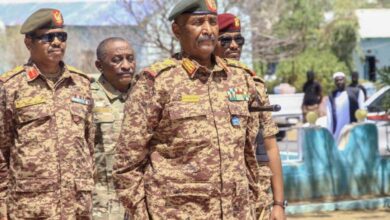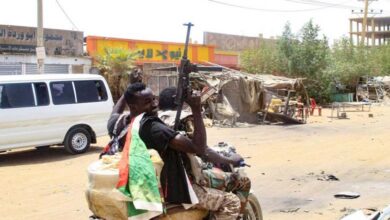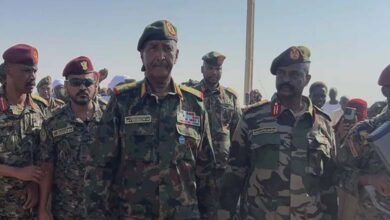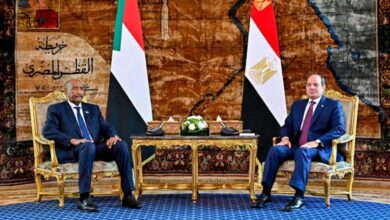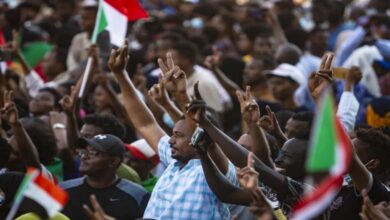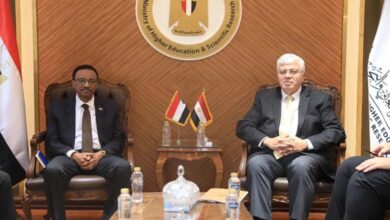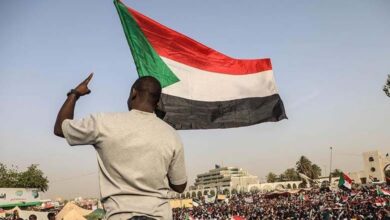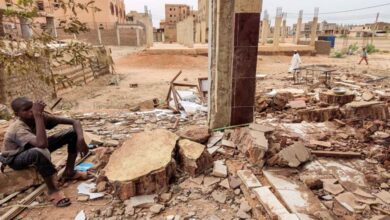Growing Calls to Disband the Muslim Brotherhood After Jordan Cell Dismantled
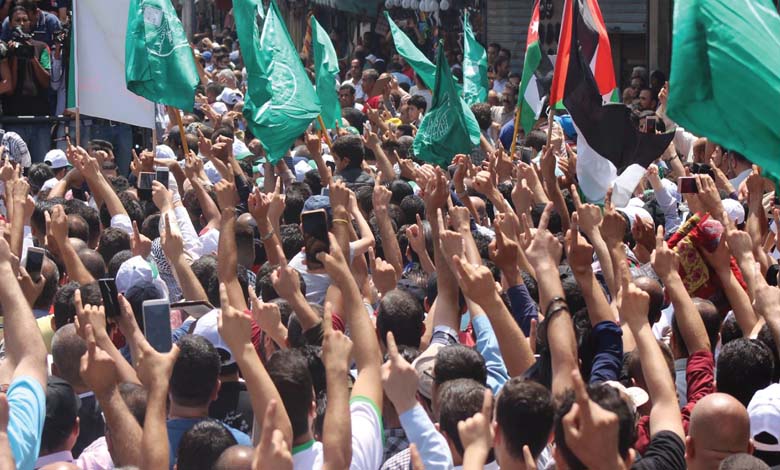
Parliamentary blocs and political parties are calling for those involved in the “terrorist” plot—and the organizations they belong to, namely the Brotherhood—to be held accountable.
The Muslim Brotherhood and its political wing, the Islamic Action Front party, are facing mounting anxiety about their future in Jordan after authorities announced the foiling of a plot involving 16 individuals forming a missile-manufacturing cell. The group allegedly aimed to threaten national security, sow chaos, and cause material sabotage. Some members were found to be affiliated with the Brotherhood and Hamas, prompting parliamentary calls to dissolve the Islamic Action Front.
-
The Muslim Brotherhood in Jordan… From Preaching to Arms? Details of the Foiled Plot
-
Dismantling of a Terror Cell Linked to the Muslim Brotherhood in Jordan: A Strategic Opportunity to Re-highlight the Group’s Threat in the Region
Since the revelation, Jordan has witnessed unprecedented polarization and accusations across various sectors, with the Brotherhood at the center of the controversy. Observers expect a new phase in dealing with the Brotherhood, possibly involving the separation of the group from its political arm.
اي تنظيم او حزب يثبت علاقته بالتنظيم الارهابي يجب ان تعاقب قانونيا بالحل والتصنيف كتنظيم إرهابي ومحظور
— سميح المعايطه (@AlmaitahSamih) April 15, 2025
Former officials have joined the calls to hold any party or organization affiliated with the Brotherhood accountable. Former Information Minister Samih Al-Maaytah stated on platform X that any party linked to a terrorist organization should be legally dissolved and classified as such.
-
7 Days Before the Parliamentary Elections… A Major Scandal for the Muslim Brotherhood in Jordan
-
Non-Licensed Muslim Brotherhood in Jordan Completes Formation of Its Executive Office
According to the 2022 Political Parties Law, a party may be dissolved by court order following conviction in cases including direct or indirect support or promotion of extremist or terrorist organizations.
Initial announcements came from the Information Minister Tuesday evening, followed by confessions from key cell members. These later expanded into more convincing statements, with some even detailing the manufacturing of drones.
الغرب بيستخدم الاخوان من قرن. في مصر ضد ناصر كانوا مع ال MI6 و ال CIA. في سوريا و اليمن و ليبيا و حتى اندونيسيا سوكارنو الاخوان كانوا حصان طراودة لضرب اي حركة تحرر او مشروع معادي للهيمنة الامريكية. موقف اخوان الاردن الحالي او الاصلاح في اليمن مش مفاجئ و لا حاجة.
— Eyad El Maraghy (@MaraghyEyad) April 17, 2025
Jordan’s General Intelligence Directorate reported the arrest of 16 individuals tracked since 2021. Video confessions confirmed several members’ affiliation with Brotherhood factions.
Eight accused appeared in video confessions, with four others identified by name. The main suspect, Ibrahim Mohammed, has yet to be publicly identified or shown.
-
Details of Foiling Jordan’s Most Dangerous Terror Plot Led by Muslim Brotherhood Members
-
External Agendas and Internal Arms: The Muslim Brotherhood in a New Confrontation with the Jordanian State
In the missile manufacturing case, three suspects—Abdullah Hisham, Mohsen Al-Ghanem, and Moaz Al-Ghanem—admitted Brotherhood affiliation and efforts to initiate missile production within Jordan.
In a recruitment case, Brotherhood member Khadr Abdelaziz, affiliated since 1975 and head of the Zarqa branch and party office, confessed to providing advanced ideological and security training to two active youths. Others named included Ayman Ajjawi and Mohamed Khalil, identified as responsible parties.
In another recruitment case, Marwan Al-Hawamdeh (a Brotherhood member for 13 years) and Anas Abu Awad admitted to coordinating foreign training and recruitment for Jordanian youth, including a meeting in Saudi Arabia.
-
The Muslim Brotherhood congratulates the Islamic Action Front on the results of the parliamentary elections in Jordan
-
Did Iran Arm a Muslim Brotherhood Cell Linked to Hamas to Carry out Attacks in Jordan?
Regarding drones, confessions from Ali Qassem and Abdul Aziz Haroun revealed planning alongside Abdullah Al-Haddar and Ahmad Khalifa to build “glider-type” drones.
Government spokesperson Mohammad Al-Momani confirmed the cell’s involvement in four areas: short-range missile manufacturing (3–5 km), possession of explosives and automatic weapons, hiding a prepared missile, drone manufacturing, and recruiting/training operatives inside and outside Jordan.
لا يوجد إخوان معتدلون، بل مراحل مختلفة من نفس المشروع.
الأردن محطة الانطلاق، الصومال محطة الدم https://t.co/UVLXIQ0ZLE— Kawser (@KawserAhmed34) April 17, 2025
The spokesperson confirmed that the suspects belonged to a dissolved and unlicensed organization. He announced that videos of the suspects’ confessions would be made public.
The State Security Court charged the suspects with illegal weapons manufacturing, treason, and acts threatening public order—including unlawful missile manufacturing.
-
Jordan’s Muslim Brotherhood suspends municipal elections
-
The Brotherhood smell of the failed coup attempt in the Kingdom of Jordan
The Brotherhood, officially dissolved by court ruling in 2020, issued a statement denying any link to the acts, claiming they were individual actions in support of resistance, unrelated to the group.
They emphasized the need for sincere national awareness and unity to strengthen the internal front based on national interests.
Dozens of political, tribal, and public statements condemned the plots. Parliament Speaker Ahmed Al-Safadi said undermining national security was a crime and betrayal warranting the harshest penalties, and that resorting to militia ideology under a strong state was unforgivable.
-
The brotherhood of Jordan… Details of the dissolution of the teachers’ union
-
The Muslim Brotherhood holds a meeting with its deputies… What was discussed?
Parliamentary blocs and parties demanded accountability for the plotters, and the Foreign Affairs Committee of Parliament called for action against the organizations involved, pointing to the Brotherhood.
The exposure of this cell—active since 2021—marks a turning point in Jordan’s relationship with the Brotherhood, potentially affecting the Islamic Action Front, which won 31 out of 138 seats in the 2024 parliamentary elections, held amid political and economic reforms.
This win came four years after the Brotherhood was dissolved by court ruling, stripping it of legal and formal status.
-
Selling illusions and offering false hope… Why is the Muslim Brotherhood calling for reconciliation?
-
The International Muslim Brotherhood Organization Has Undergone Several Changes Before Reaching Its Current Form: Learn About Them
The Islamic Action Front has yet to comment. Meanwhile, the authorities arrested the party’s parliamentary bloc director, Khaled Al-Juhani, Monday night.
Other arrests of Islamist leaders and activists occurred recently. Authorities also prevented protests near the borders and around the Israeli Embassy in Amman.
Experts believe these events highlight the need to reactivate the Brotherhood’s legal case, reaffirmed by a 2020 Court of Cassation ruling.
-
The Phenomenon of Splits within the Muslim Brotherhood Since Its Inception to the Present: Details
-
Activists: The Muslim Brotherhood caused the division of the Palestinian people and spreads lies to maintain their bases
In 2015, Jordan granted a new license to a group of former Brotherhood members, distancing themselves from the parent group in Egypt. This new group was registered as an association, while the original group failed to regularize its status.
On Wednesday evening, an MP suggested Parliament could freeze or cancel the Islamic Action Front’s seats.
The strongest responses came from Jordanian tribes and local communities denouncing the plots.
Jordan remains a key U.S. ally in the region and an active member of the international coalition against terrorism. Despite regional turmoil, the Kingdom maintains relative stability and has previously foiled multiple threats to its national security.


